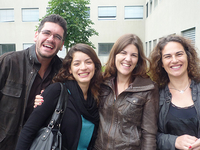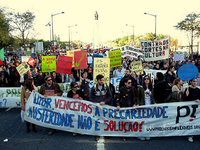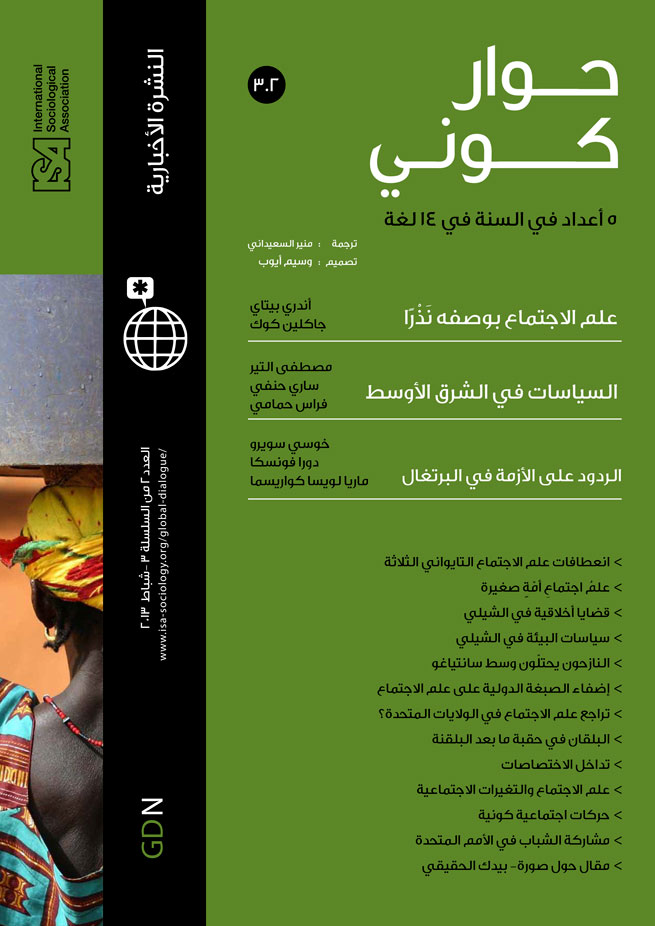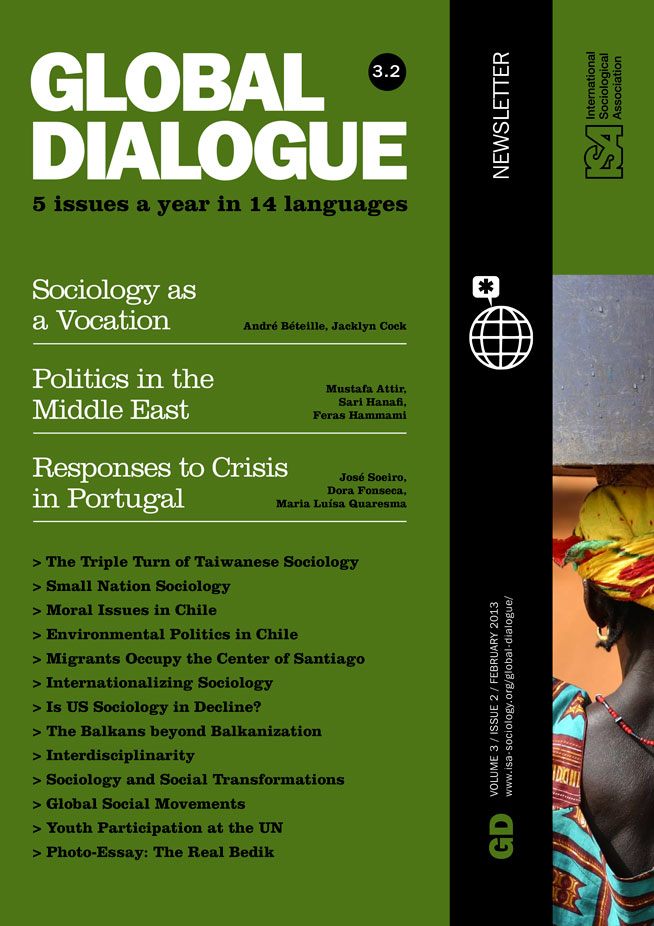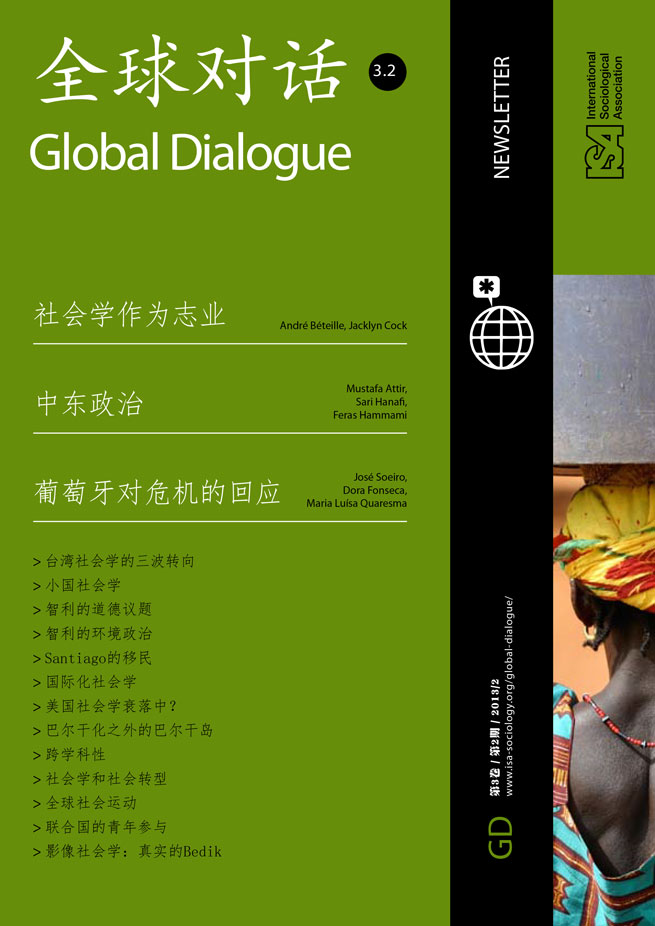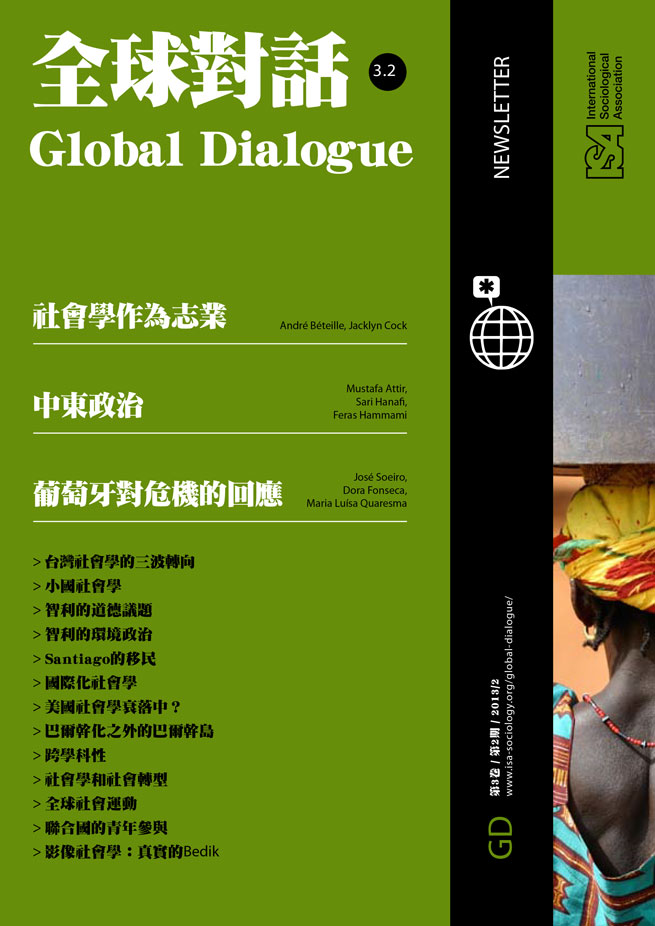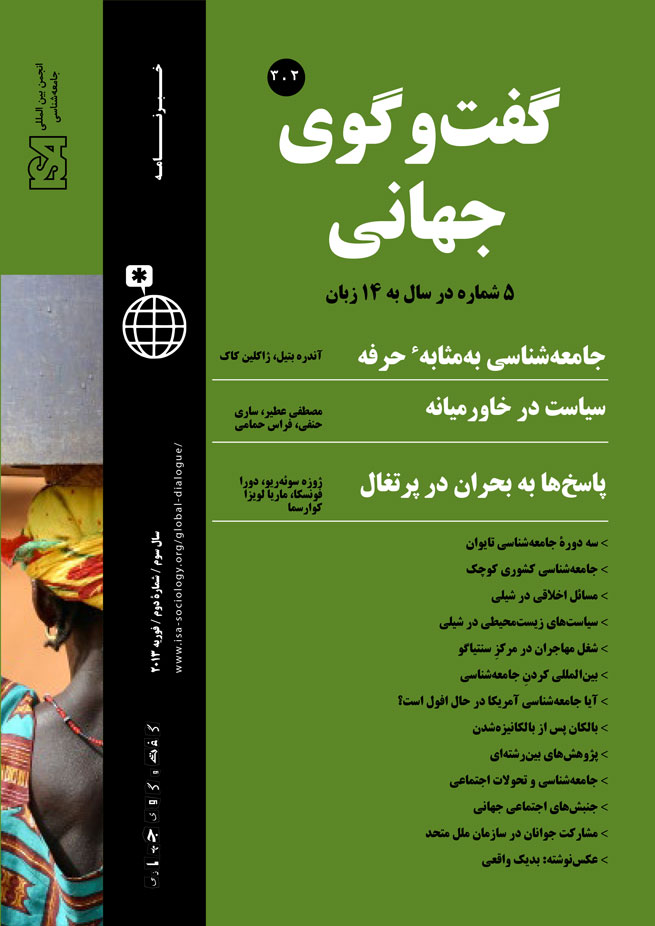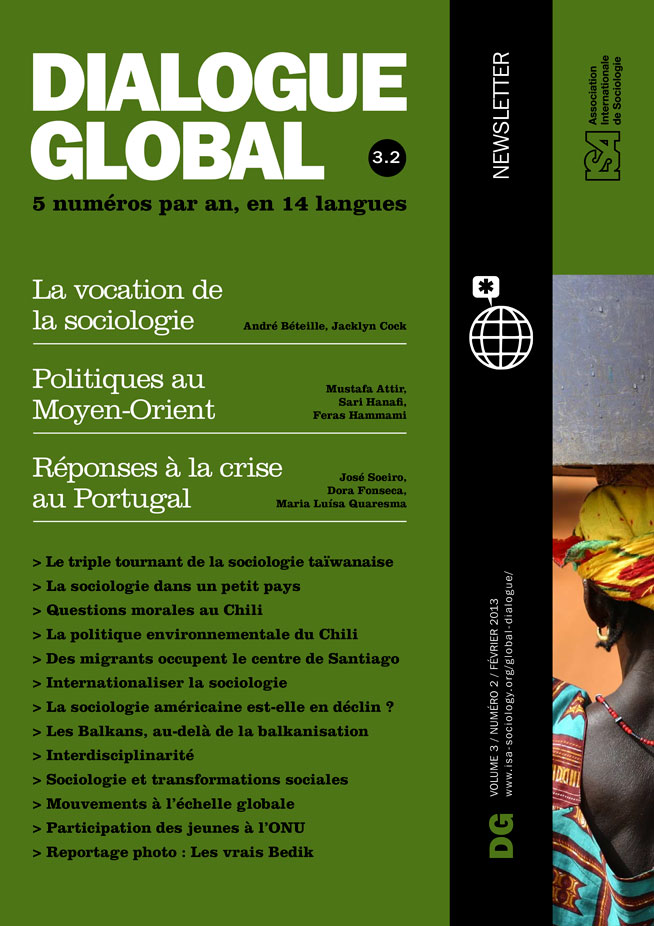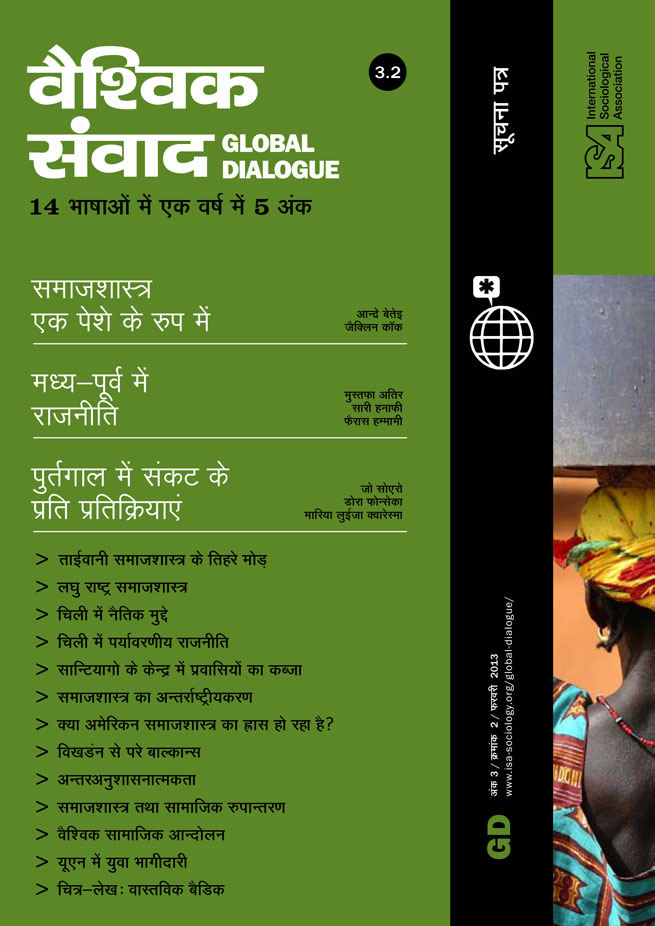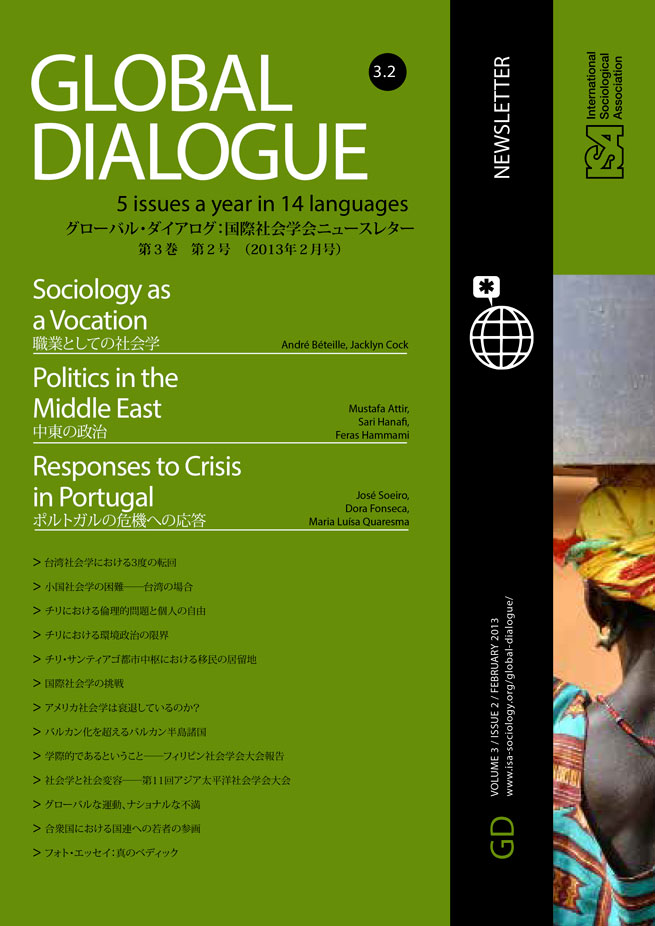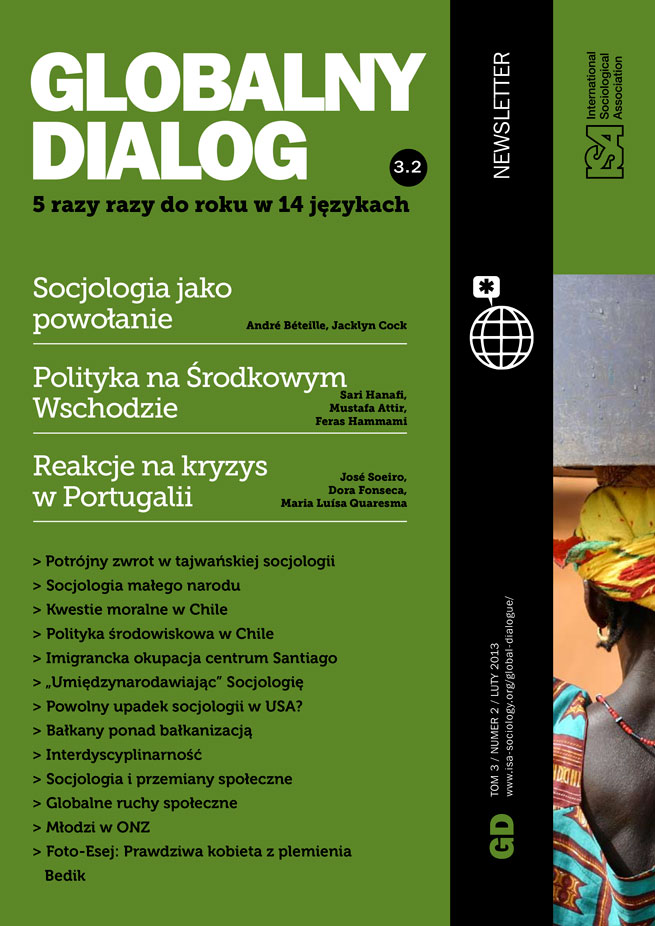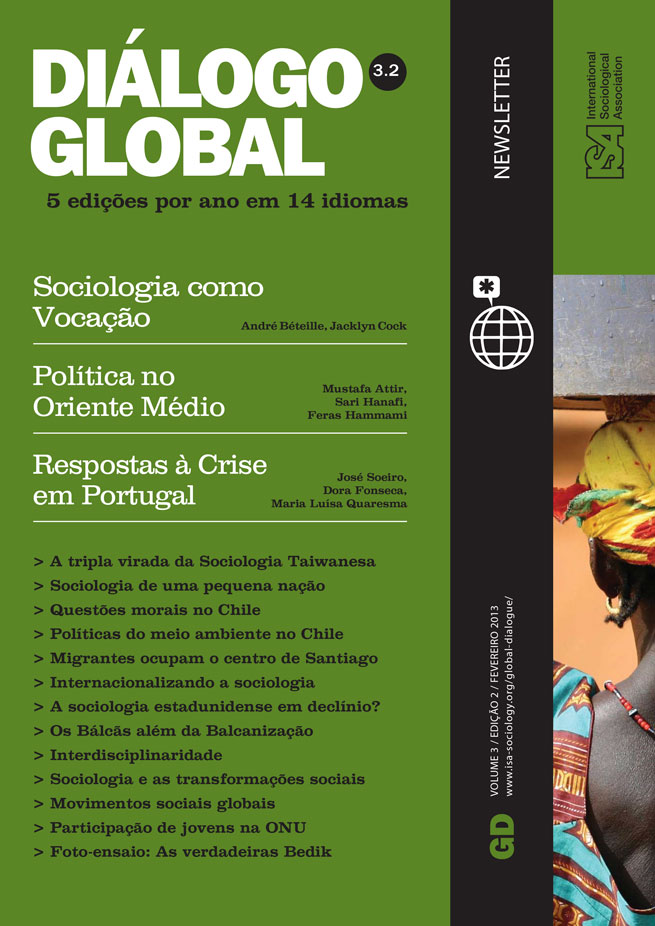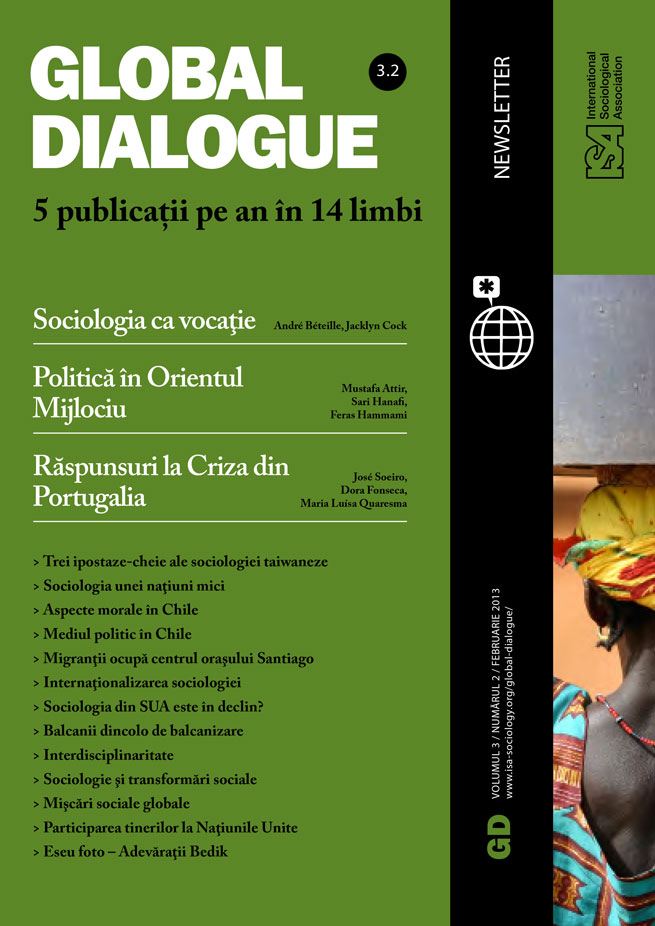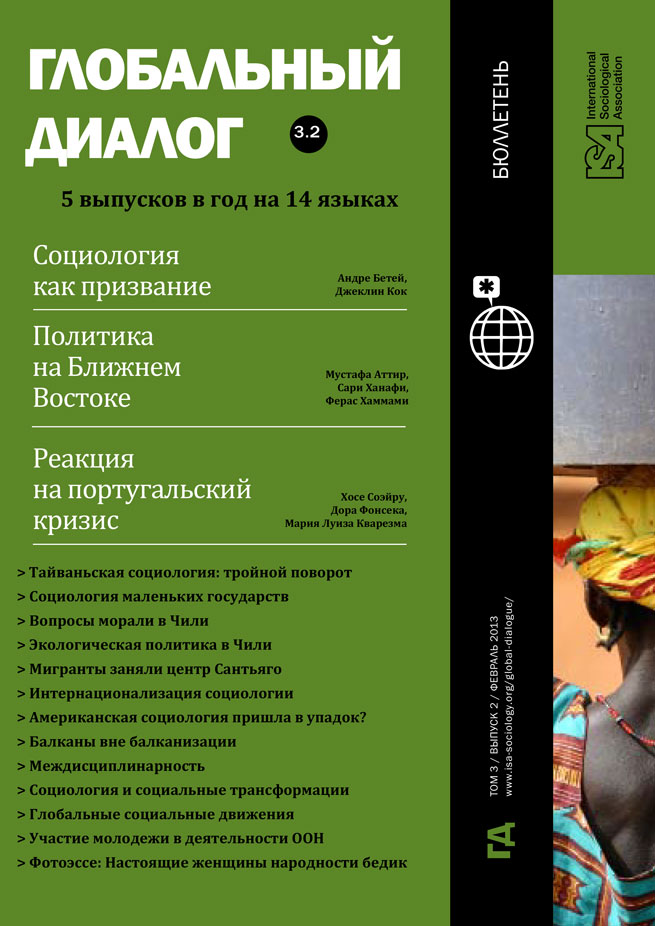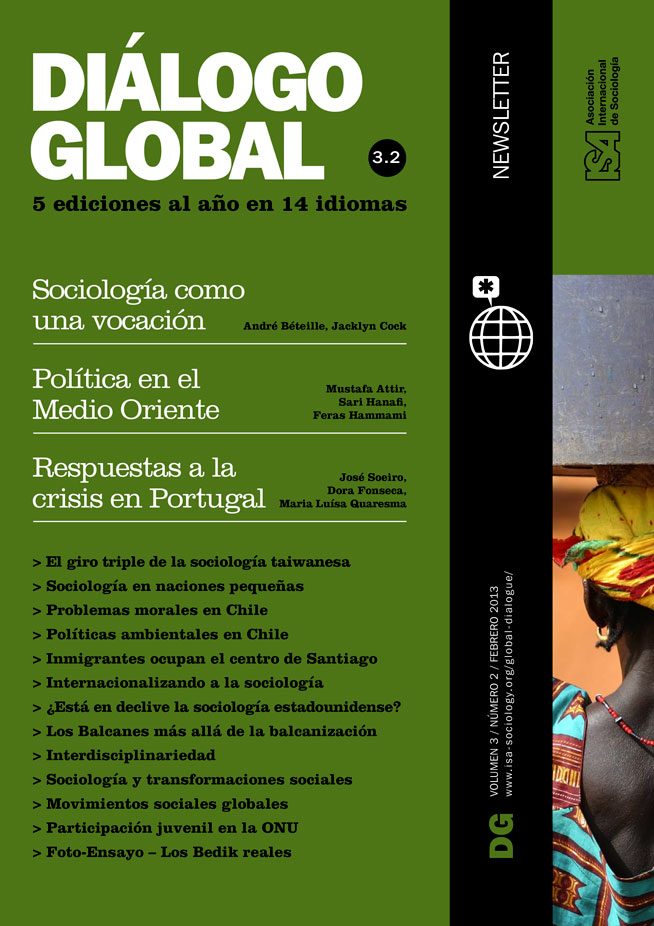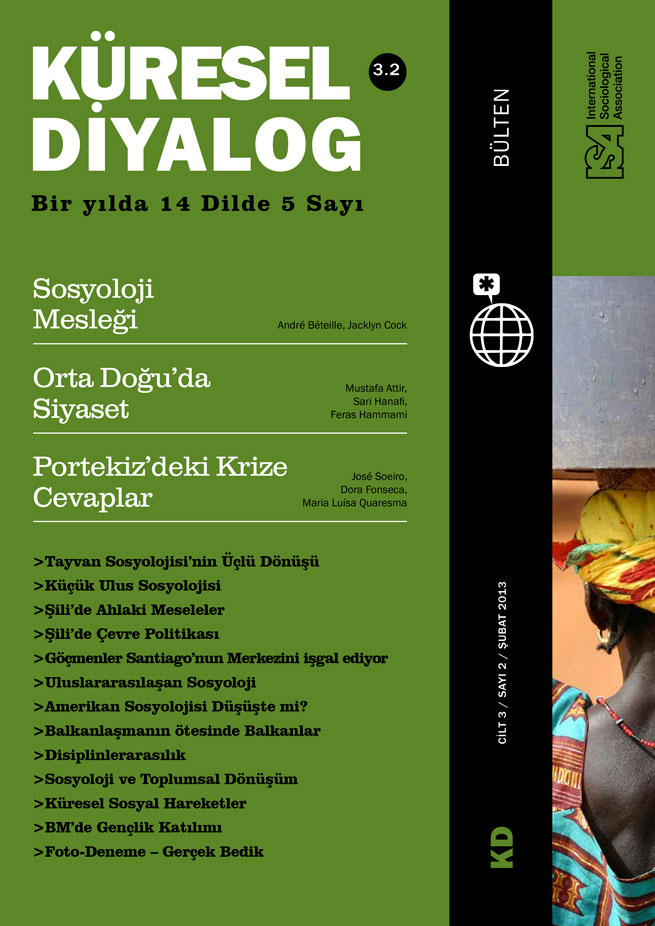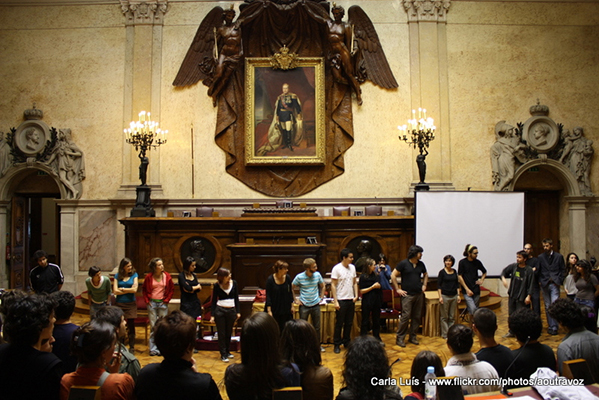There we were in the middle of the Congress of the Portuguese Sociological Association, held in Porto in June (2012), putting on a “forum-theater” play, called Estudantes por Empréstimo (“Students for Loans” as opposed to “Loans for Students”, http://estudantesporemprestimo.wordpress.com/). It narrates a concrete story – a student who, having no scholarship, was forced to take out a bank loan in order to proceed with her studies. The play is a Theater of the Oppressed project that has been running for more than two years, performed in dozens of schools and colleges in Portugal, from north to south, with thousands of students taking part. Bills and petitions were made from it; debates and direct actions were inspired by it. Depicting the costs of education, the play dramatizes unequal access to higher education, cuts in public funding and the spread of bank loans to students, subjecting their future to the financial system.
After watching, recognizing, identifying, and laughing, the audience is prompted to discuss what happened in the performance, what the story expressed, and what is the root of the problem. The audience is then invited and stimulated by the facilitator, known as the joker, to take to the stage and rehearse possible solutions to the problem posed in the play: could they have done something different in that situation? Some people accept the challenge and the forum unfolds.
Theater of the Oppressed Meets Sociology
The ForumTheater is the most common form of the Theater of the Oppressed (TO), a theatrical-political method invented by the Brazilian Augusto Boal, and used in many countries as part of social, political, and educational work. In Portugal, several community groups have adopted it to think about their difficulties and rehearse the changes they would like to implement. Its starting point is a radical democratic hypothesis: theater is “the ability that humans possess – not animals – to observe themselves in action” and that’s why “everyone can do theater, even the actors!”[1] With theater we represent reality in another space – the aesthetic one – and so we become agents, deciding the reality we create. Simultaneously, we gain the privilege of being spectators.
In TO, spect-actors – a term created by Boal to name a participant as both actor and spectator – are invited to break the wall that separates stage and audience, those who observe (spectators) and those who have the monopoly of action (actors). This conventional division of labor that confers on a few the monopoly of thought, action or legitimate word is put into question, in theater and beyond. Nobody is confined to their social role: the ability to perform other roles is the proof of the possibility of emancipation.
Was it an accident that this forum theater was part of a sociological congress? Or, on the contrary, is it, in fact, a form of sociological debate and intervention? What is the relation between TO and public sociology? What can each learn from the other, and what difficulties does such a dialogue face?
The craft of sociology and of theater are both, in a sense, a symbolic production of reality and the manufacturing of categories of representation and understanding. In both cases, they do it at odds with other actors – other disciplines, politicians, other media – that offer competing ways of representing the social world. A forum-theater play is a narrative about reality, a point of view about it. Forum theater usually shows the different scenes of the story as frameworks of interaction. One of its dramaturgical challenges is how to make evident the structural elements that are present in what Erving Goffman called “the interaction order”. Sociology can help here.
Sociology has developed a significant apparatus to represent, through concepts, elements that are not readily identifiable in each concrete situation, because they lie beyond it. These are for sure useful in the work of making visible, in the theatrical scenes, the systemic properties that are there in social situations, the structures that are so often invisible. At another level, sociology has deeply studied how social relations are somatized through practices and dispositions and how roles are one of the means through which the social world is embodied. Sociology might challenge theater to take into account how roles, identities, forms of action, bodily hexis are structured by social relations of power. Last but not least, sociology is used to look at individual stories and narratives not in their irreducible singularity but in the relations they express. What in TO is called “ascesis” – the process through which we pluralize individual narratives and go “from the phenomenon to the law” – is a basic operation of sociological reasoning.
A Device or a Challenge for Public Sociology?
Equally, TO might also be a powerful device for public sociology. Being a more complete human language, theater can bring to each debate the complexity of the context, mechanisms of interaction, how the social is embedded in body and space. In an immediate way, it ties the discussion to the experience, to what Pierre Bourdieu called “practical sense,” avoiding an abstract code that is often experienced (and used) as a means of dispossession, particularly for those that don’t belong to the field of sociology. Because forum theater is located in the interstitial space between what exists and what doesn’t yet exist (and can be performed by spect-actors), it invites us to think about social reality critically, as just one possibility among others. In TO, the oppressed harbor within themselves both submission and a rebellion; each body is at the same time the locus of domination and of liberation; each repetition is at the same time an act of reproduction and the possibility of a deviation.
Finally, TO is interactive. It can be both “instructive and entertaining,” to use Brecht’s expression, and allow public sociology to reach much broader audiences. For an audience that is not immediately drawn to a sociological discussion or political debate, an invitation to watch a play might be more exciting than going to a formal debate or class. This, at least, was the experience we had with the project of Estudantes por Empréstimo: there were always many more people involved than in previous attempts to promote the usual “information sessions” on scholarships or on the situation in higher education. Theater was not ornamental or illustrative, but it was seductive to youths who were not so motivated by other forms of debate.
Of course, not everything is easy when we think about Theater of the Oppressed as a possible means of a public sociology. De-specialization is at the very roots of TO. Is it compatible with sociology, even if we think about it as “communicative knowledge exchanged between sociologists and their publics” as Burawoy describes it? If public sociology is to be more than a way of disclosing, in public space, the relevant results of “professional sociology” and the difficult questions of “critical sociology,” how should it deal with what Jacques Rancière calls the “permanent scandal” of democracy, that is taking equality not as a goal but as a presupposition? In other words, how can public sociology claim the difference in status between the thinking of the sociologist and the common sense and, at the same time, accept the democratic premise (very present in TO) that we all have the same right and legitimacy to speak about the social world? Can public sociology dismiss the idea of the sociologist who enlightens the dominated with science and instead make a risky move towards a negotiated collective construction of knowledge in public space, aiming to become itself a new common sense as Boaventura de Sousa Santos proposes? And can this be done without giving up the scientific protocols and requirements of sociological discipline? We should, at least, give it a try.
[1] Boal, A. (2002) Games for Actors and Non-Actors. London: Routledge.
José Soeiro, University of Coimbra, Portugal
